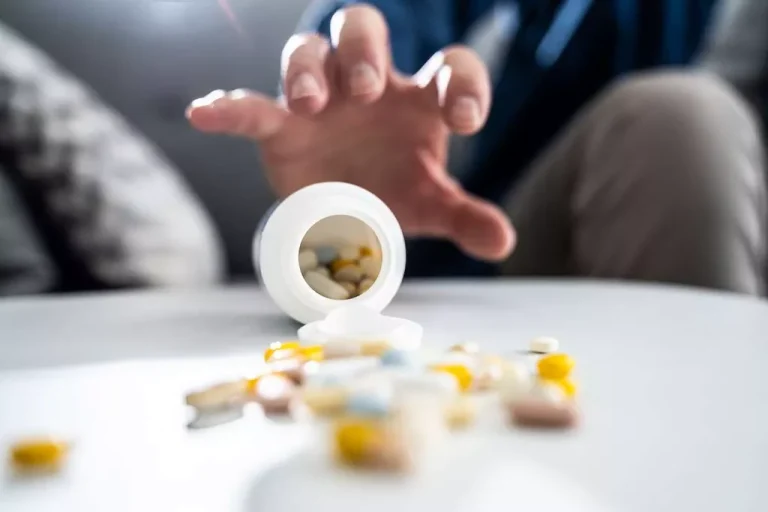
Experts suggest a diet composition for those in alcohol recovery of approximately 45% carbohydrates and 30% healthy fats, with the remaining 25% from protein. This balance ensures that individuals in recovery receive the necessary nutrients to help rebuild their bodies, support brain health, and facilitate a successful recovery journey. During the journey to recovery from alcohol dependence, a balanced diet plays a crucial role in restoring physical health and supporting brain function.
The Best Foods For Alcohol Detox: What To Eat While In Early Recovery

Not only are these types of foods rich in nutrients and easy for the body to digest, but they can also be hydrating. This is important because hydration helps get drug metabolites out of the body during early recovery and can ease detox symptoms like feeling sick or lightheaded. Integrating a balanced diet rich in these nutrients can ease withdrawal symptoms, rebuild strength, and encourage a sustained recovery. For those in recovery, incorporating a variety of lean proteins into the diet is advisable. Polyunsaturated fatty acids, found in walnuts and salmon, can help reduce anxiety in people struggling with substance abuse.
The Significance of Nutrition in an Alcohol Recovery Diet
The physiological and metabolic consequences of chronic alcohol consumption can significantly impact one’s overall health, making a well-structured and balanced diet essential during the recovery journey. The addiction experts at our drug rehab in Sebring share expert tips on nutrition for recovering alcoholics, outlining the dietary considerations that can aid in recovery from alcoholism. By understanding the intricate relationship between alcoholism and nutrition, we aim to provide evidence-based insights to support individuals in their path to sobriety.
Complex Carbs

Avoid heavily caffeinated beverages like coffee, sodas, and dark teas, since these drinks may worsen dehydration when going through alcohol withdrawal. Protein boosts your energy levels and enhances your body’s ability to absorb certain vitamins and minerals. Protein is important for those whose bodies can no longer absorb nutrients on behalf of alcohol use disorder. Protein also helps boost memory, concentration, and mental clarity that may also be inhibited by alcohol use. Bright, colorful fruits and vegetables like red and yellow peppers, blueberries, and oranges are high in carotenoids — pigments that give these foods their vibrant hues.

Hydrating Foods (Plus Plenty of Water)
- Detoxing under medical supervision is the safest way to prevent and treat the more severe and potentially life-threatening symptoms of withdrawal.
- Nearly everything you can buy at a grocery store has a nutrition label, except for alcoholic beverages.
- In general, anyone looking to maintain proper nutrition should focus on whole foods like fruits, vegetables, grains, beans, nuts, and low-fat meats.
- A diet of carbohydrates, protein and healthy fats is important in alcohol recovery.
- Certain foods may thwart the detox process by unnecessarily upsetting your stomach or dehydrating individuals who are experiencing moderate to severe withdrawal symptoms.
Whole grains, protein, and generally nutrient-rich foods are the best foods for alcohol detox. To heal from these combined challenges, Aqua Recovery’s dual diagnosis treatment program is very helpful. Our program doesn’t treat one condition after the other, but it focuses on the common causes of substance abuse and eating disorders. Our dual diagnosis program is customized to the specific needs of each person, and it includes individual and group therapy, aiming to heal from both sides of these complex struggles in a holistic way.
Green Leafy Vegetables

Cayenne pepper is a natural spice that may help with alcohol detox because it contains capsaicin, which has been shown to have pain-relieving and appetite-stimulating effects. Multivitamin supplements can also help you get the required amount of vitamins and minerals you need. Look for a multivitamin (or several) that contains omega 3 fatty acids, magnesium, zinc, and of course vitamins A, B, C, D, and E.
Vitamins & Supplements for Alcohol Recovery
But nutrition is just one aspect of the self-care that those in recovery need. Beyond eating well, former drug users should exercise, get plenty of sleep, schedule time to relax, and rebuild strong social support systems – including family members, friends, and therapists. Self-care is far best diet for recovering alcoholic from being selfish; it’s a powerful strategy for substance abusers to nourish their bodies and their spirits. Rather than shopping for each vitamin, it’s best to understand the components of a healthy diet. The connection between nutrition and alcohol detox cannot be stressed enough.
- Contact a Recovery Advocate today to learn how we can help you achieve lasting freedom from alcohol addiction.
- The first stage in rehabilitation, detoxification is a five- to seven-day program intended to help individuals with a substance use disorder to overcome the initial symptoms of physical withdrawal.
- Get started by speaking with one of our compassionate treatment specialists.
- Eating fresh, nutrient-dense foods replenishes nutrient stores, reduces inflammation to promote faster healing and avoids taxing the liver during the detox process.
- Macronutrients are those your body needs in large amounts each day to function.
- Protein-rich foods such as lean meats, fish, eggs, yogurt, and tofu can help support the healthy function of various organs, including the liver, kidney, pancreas, and heart.
Worse, even if you begin an exercise regimen, this phenomenon can limit your muscle growth, making exercising more complex and less effective. Protein from both animal and plant sources are broken down into amino acids that the body uses to repair cells. Animal sources of protein like tuna, turkey and chicken are also great sources of vitamin B6. Red meat, pork and poultry provide iron, and fish like salmon are great sources of both omega-3 fatty acids and calcium.
The Critical Role of Protein in Alcohol Recovery Nutrition

No matter where you are in your recovery journey, our team will be there every step of the way. Good nutrition can be a strong ally on the road to recovery from drug addiction. The right food can not only mitigate drug damage but also help the former abuser feel stronger. It can set off a positive feedback loop to show how ingesting healthy foods – instead of deadly or harmful drugs – will make recovering people feel their best.
- The connection between nutrition and alcohol detox cannot be stressed enough.
- Animal sources of protein like tuna, turkey and chicken are also great sources of vitamin B6.
- For instance, alcohol inhibits the body’s absorption of protein, healthy fats, and essential B vitamins — all of which are vital to maintaining a strong immune system and staving off illness and disease.
With a focus on eating well in recovery and the right sober diet, it’s possible to improve recovery efforts by working to undo the damage drugs and alcohol can do to the body. At Granite Mountain Behavioral Health Center, we know that what you put in your body is just as crucial to your overall recovery. That’s why our chefs and nutritionists are trained to provide a well-balanced diet for recovering drug or alcohol addicts such as yourself who need the right nutrients every day.
Հետաքրքիր է․․․
5 Stages of Alcoholism: Signs, Symptoms, and Treatments
Symptoms of Alcohol Withdrawal: Timeline and Signs of Danger
How Long Does Drug-Induced Psychosis Last? Recognizing Symptoms and Seeking Treatment